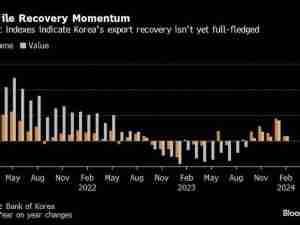China said a U.S. delegation will visit next week for trade talks, confirming the two sides will have their first face-to-face negotiation since President Donald Trump and his counterpart Xi Jinping agreed to a 90-day truce in their trade war last month.
Deputy U.S. Trade Representative Jeffrey Gerrish will lead the U.S. delegation for the talks on Jan. 7 and 8, the Commerce Ministry said in a statement. Vice ministers from the two countries talked on the phone on Friday, and will discuss how to implement the consensus reached in Argentina when the two leaders meet in Beijing, it said. Bloomberg News reported earlier that U.S. officials would head to Beijing the week of Jan. 7.
The talks adds to signs that the world’s two largest economies are looking for a way to cool trade tensions. The S&P 500 Index tumbled 2.5 percent on Thursday amid mounting indications that American business is starting to feel the pinch from the trade conflict. Apple Inc. plunged the most since 2013 in part due to slowing iPhone sales in China, where the economy has slowed.
“The negotiations next week are important because they will establish expectations, but we shouldn’t expect major breakthroughs,” said Myron Brilliant, vice president of international affairs at the U.S. Chamber of Commerce.
The talks will be divided into groups dealing with non-tariff measures, intellectual property, agriculture and industrial purchases, people familiar with the matter said. Other Trump administration officials at the talks will include Gregg Doud, USTR’s chief agricultural negotiator, and David Malpass, the Treasury Department’s under secretary for international affairs, said the people, who asked not to be named because the information is private.
U.S. Trade Representative Robert Lighthizer is expected to meet with Chinese Vice Premier Liu He, Xi’s top economic adviser, sometime later this month, one of the people said.
Chinese officials have been in constant contact with the U.S. to try to determine what else is needed to move things forward, people familiar with the talks said separately last month. It appears to them that the U.S. itself isn’t clear on what it wants, said the people, who asked not to be named because the negotiations are private.
People familiar said other attendees on the U.S. side include Gil Kaplan, under secretary of commerce for international trade; Ted McKinney, under secretary of agriculture for trade and foreign agricultural affairs; and Merry Lin, director for global and Asia economics at the National Security Council.
Trump reported “big progress” in trade negotiations after a phone call with Xi last week. Beijing also announced a third round of tariff cuts, lowering import taxes on more than 700 goods from Jan. 1 as part of its efforts to open up the economy and lower costs for domestic consumers.
After meeting Xi on Dec. 1, Trump agreed to put on hold a scheduled increase in tariffs on $200 billion in annual imports from China for 90 days while the negotiations take place. In response, China temporarily lowered tariffs on U.S. car imports for the same period.








